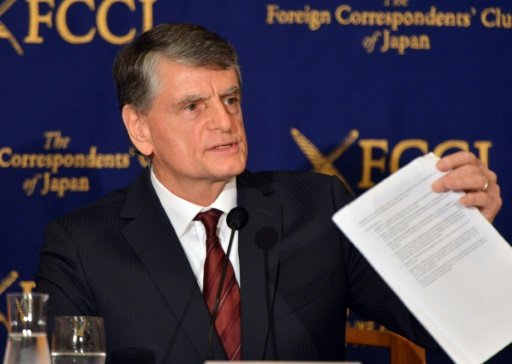A conservation group slammed Japan Thursday for fuelling illegal ivory trading and smuggling through poor law enforcement.
The Environmental Investigation Agency (EIA) ran an undercover probe that found traders in Japan were willing to dodge rules on ivory sales to move it across borders, including to major market China where elephant tusks are highly prized.
Its findings said: "Japan is clearly being targeted by ivory trafficking syndicates purchasing illegal tusks including via the internet, and arranging illegal export to China without any apparent interference from Japanese authorities."
"We think Japan has not met its legal commitments," EIA president Allan Thornton told reporters in Tokyo Thursday as the group released its 12-page report. "The time has come when action must be taken," he said.
A 1989 ban prohibits international ivory trading.
The bulk of legal ivory in Japan has to come from registered stockpiles or have been purchased before the ban came into force.
But the EIA said that 30 of the 37 traders interviewed were willing to flout the law in various ways, including buying unregistered tusks.
The report recommended it was time for the Japanese government to concede its ivory control system had been a "total failure".
In response, an environment ministry official disputed the EIA's claims that "smuggling is rampant in Japan".
"If illicit activities are taking place, as the report suggested, then that's a great shock to us," she said.
"The international trade of ivory is banned and that is strictly monitored by Japanese customs."
The report comes after the EIA last year accused Japanese e-commerce giant Rakuten of being the world's largest online marketplace for ivory, with tens of thousands of related products on its website.
The sale of ivory is a multi-billion-dollar industry, with elephant tusks and other body parts coveted in Asia and the Middle East for ornaments and use in traditional medicine.
Washington is moving to enact a complete ban on the commercial sale of ivory, while Chinese President Xi Jinping in September pledged to take "significant and timely steps" against the practice.
"The two biggest economies in the world are ending the ivory trade to reduce demand to help reduce poaching," Thornton said.
"So we think the third-biggest economy in the world (Japan) now must end the ivory trade" as well.






















































